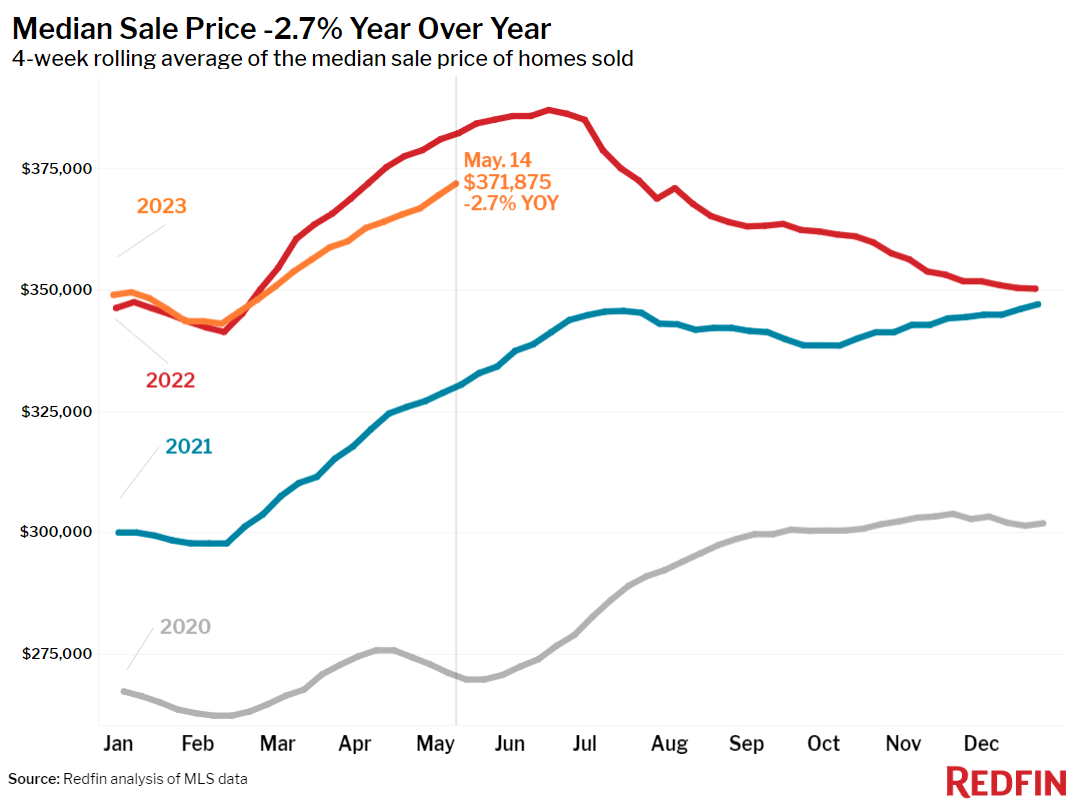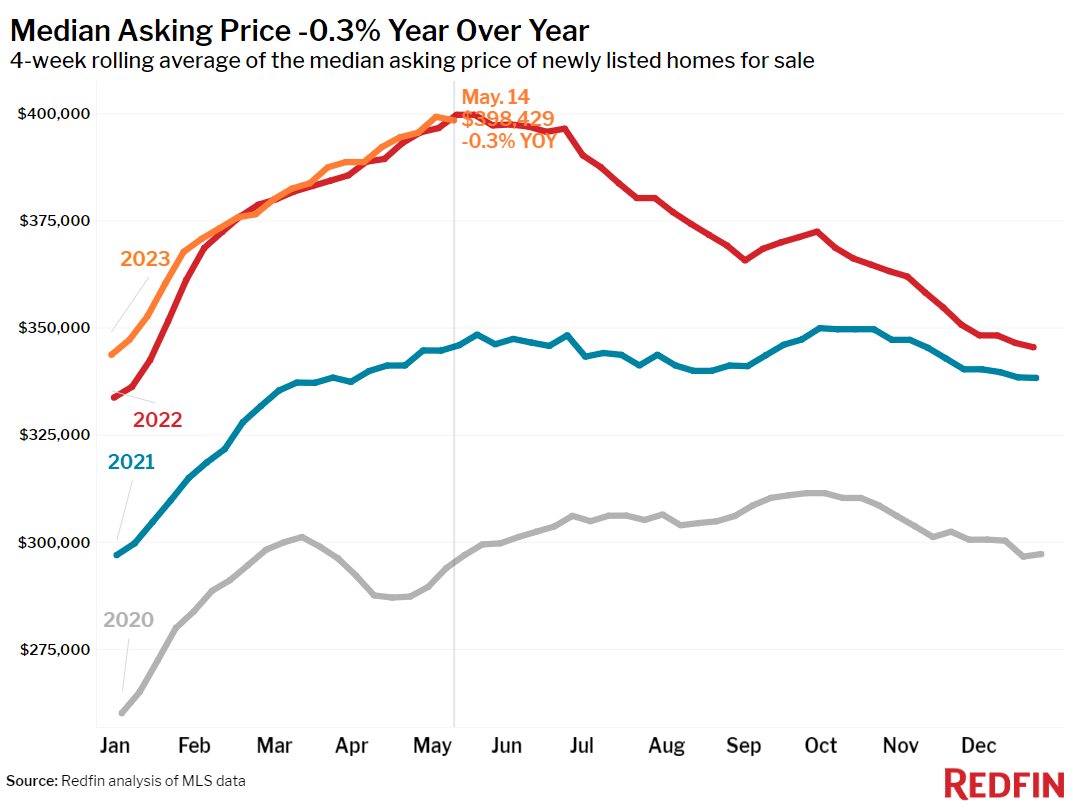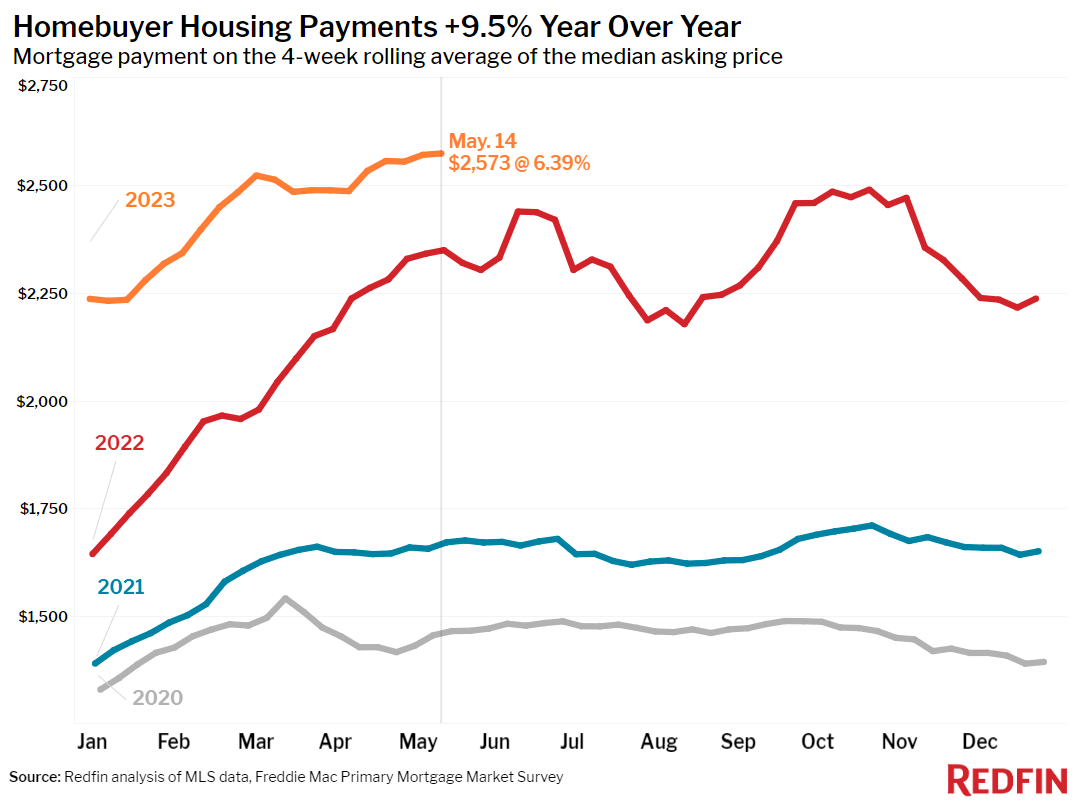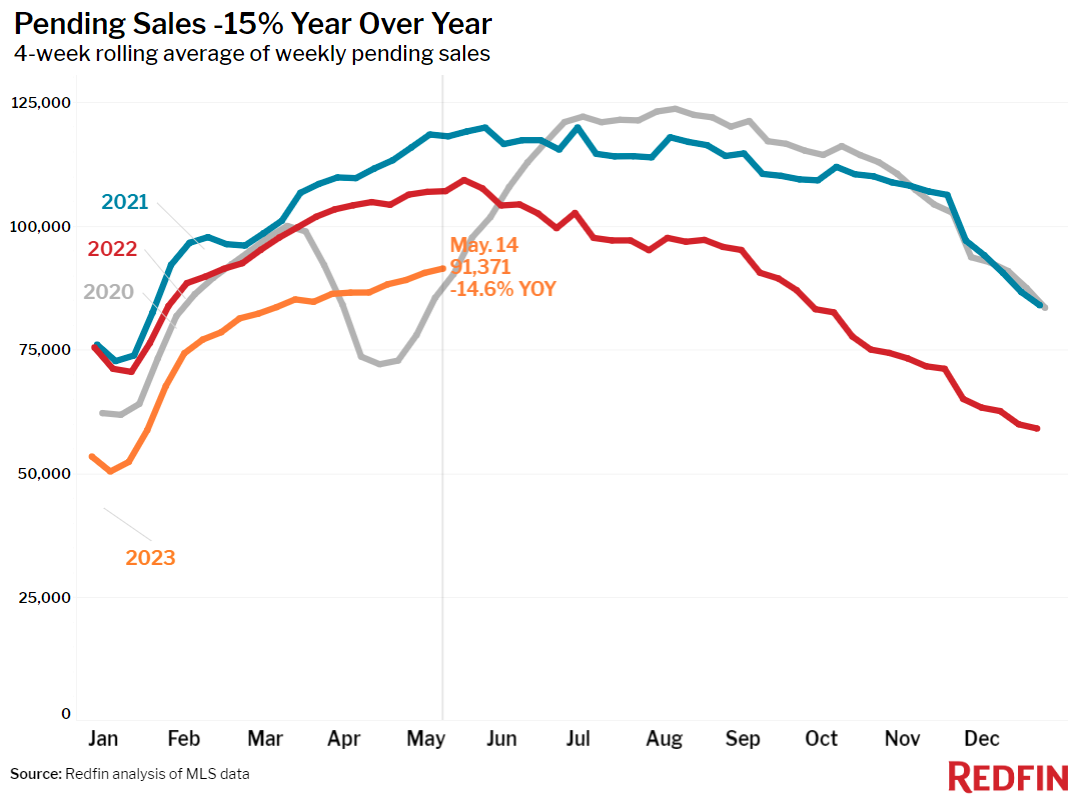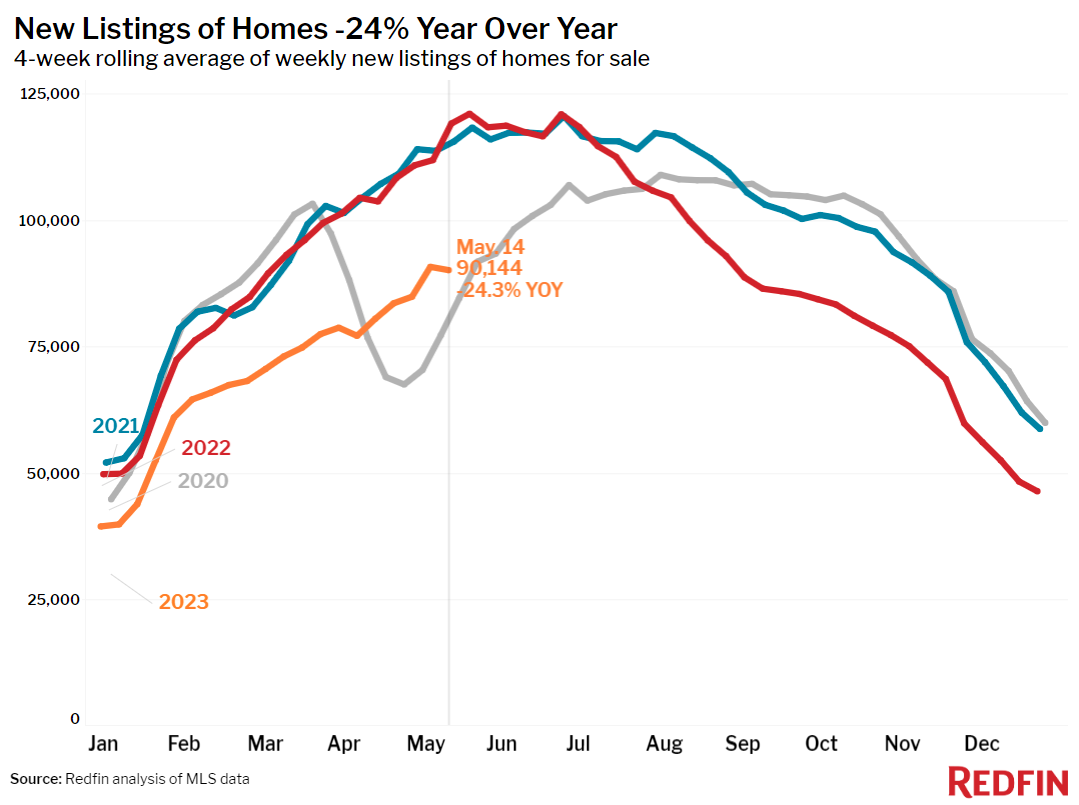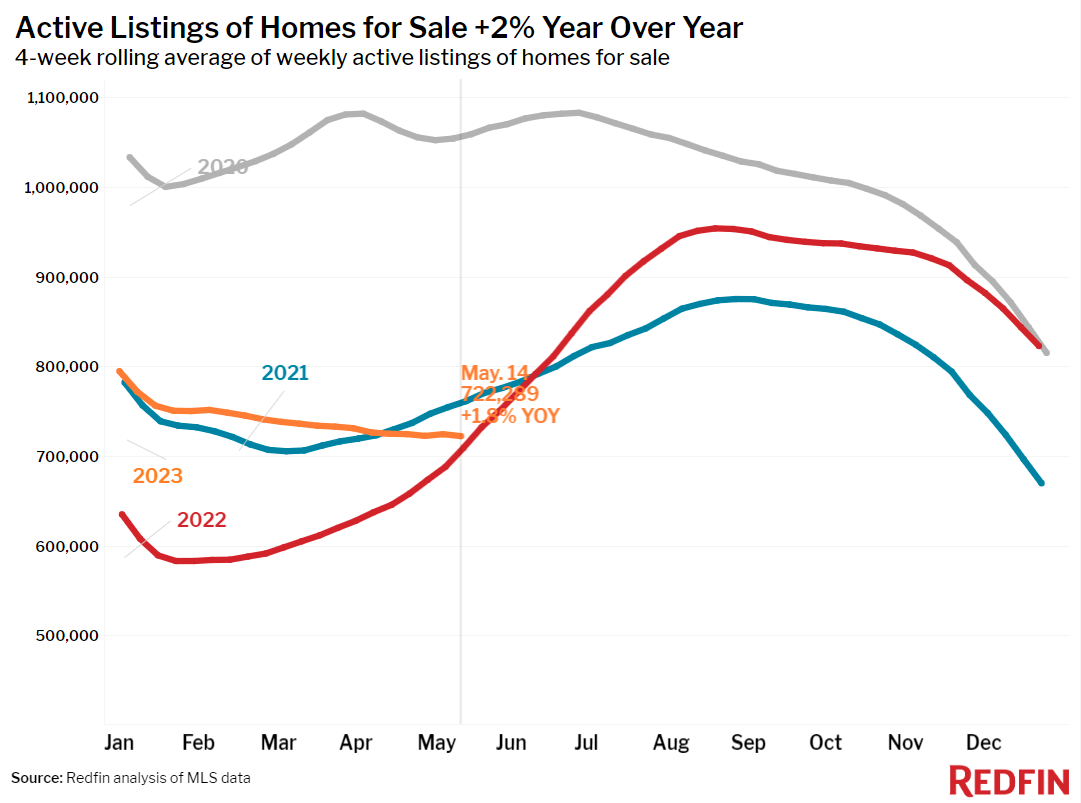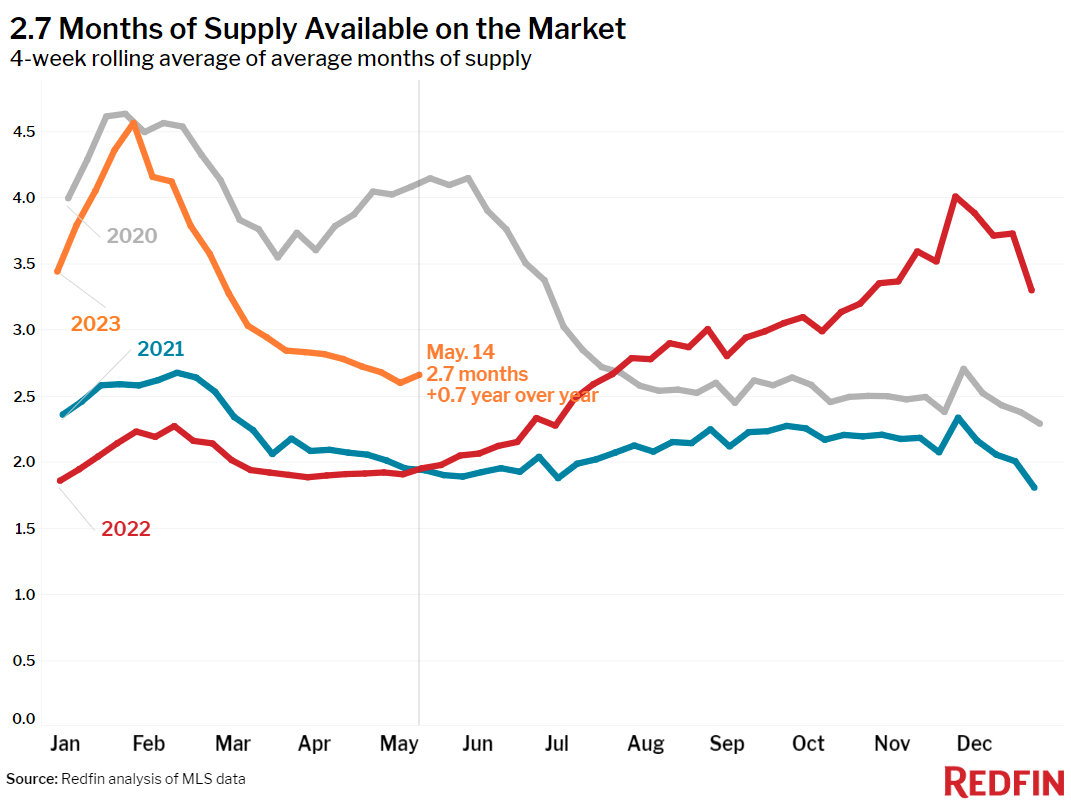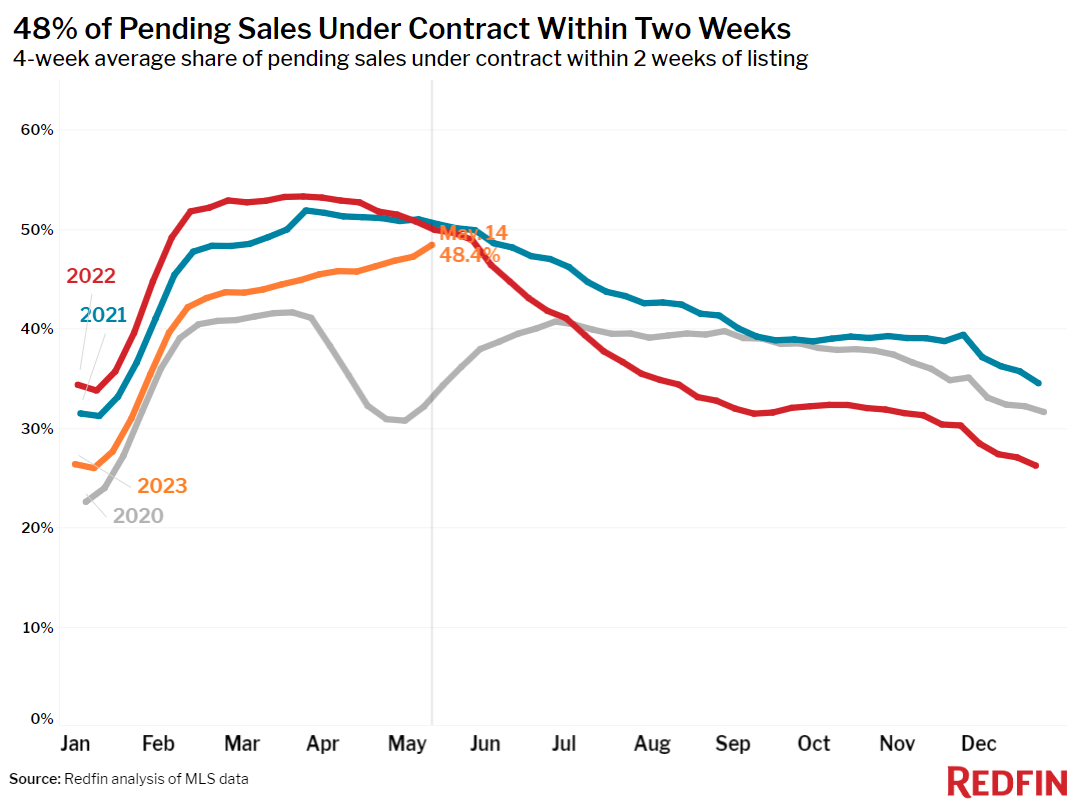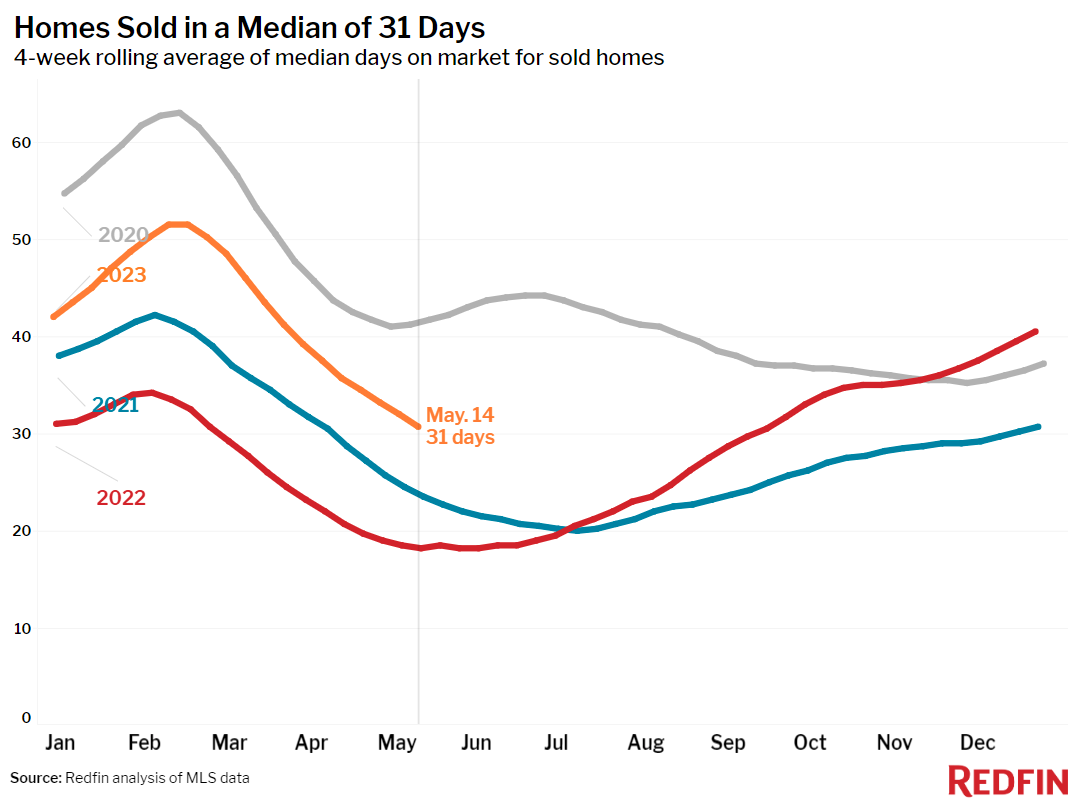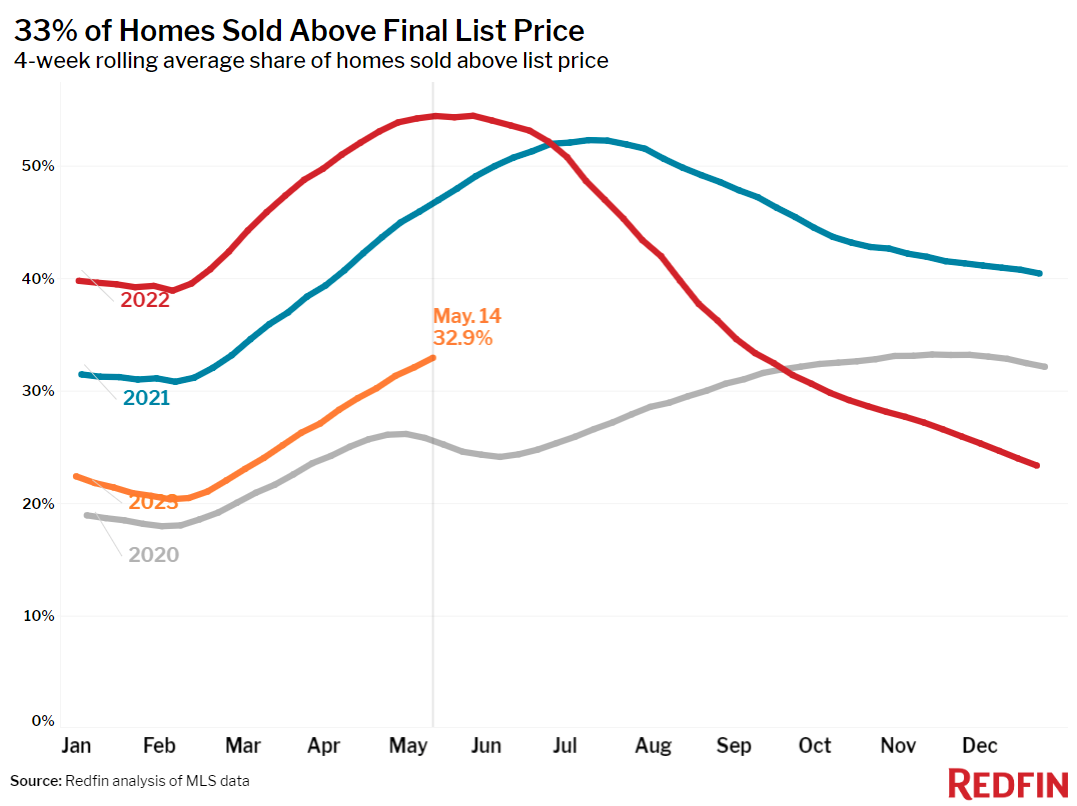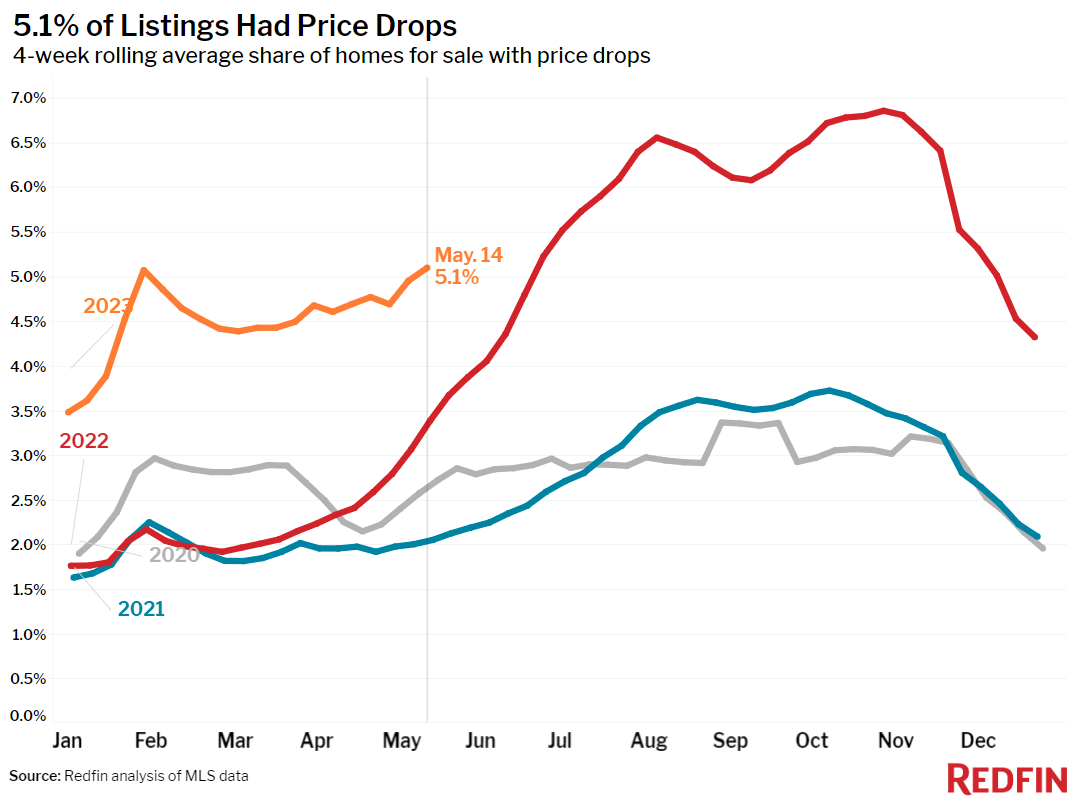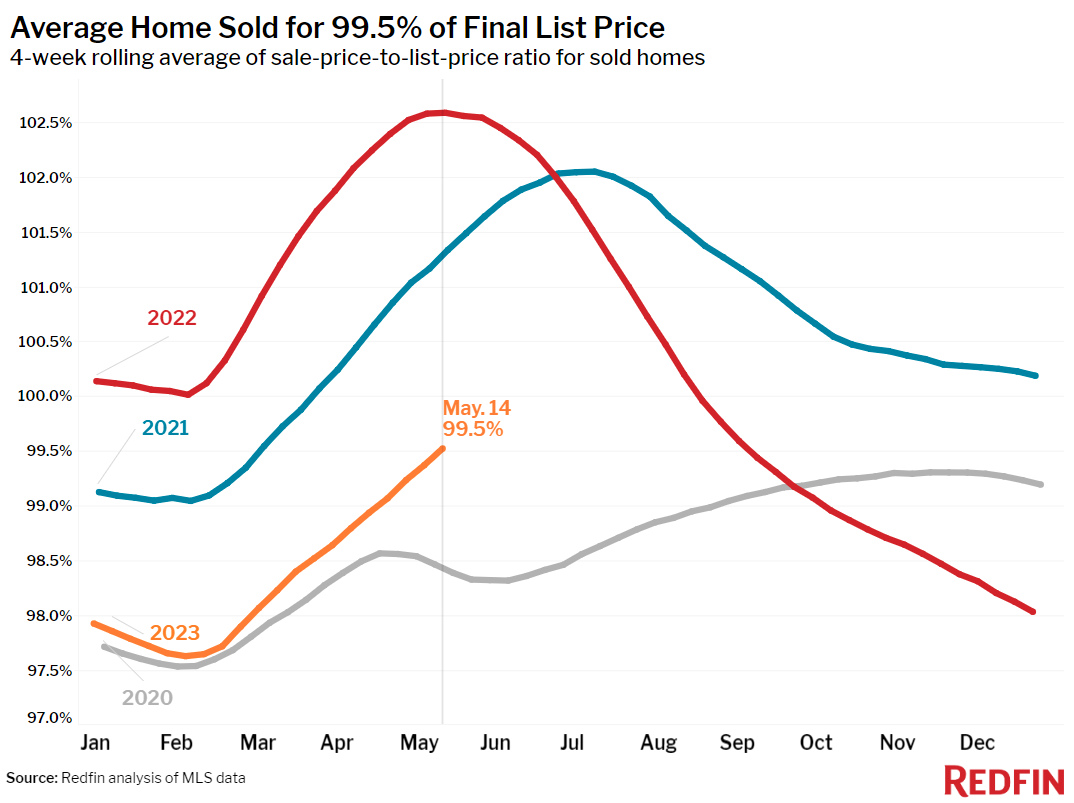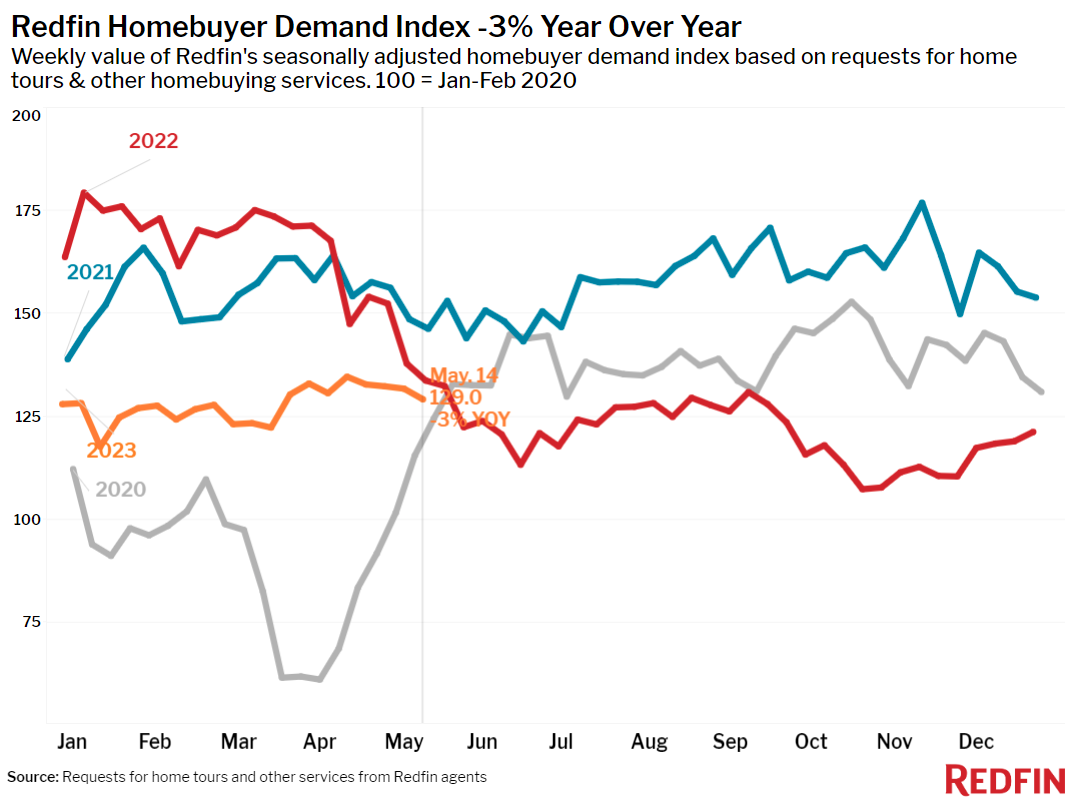U.S. home prices are down 2.7%, the smallest decline in over a month, and prices are dropping in fewer metros. That’s because there’s so little inventory hitting the market, with homeowners handcuffed to their houses by low rates.
The median U.S. home-sale price fell 2.7% during the four weeks ending May 14, the smallest decline in over a month. Monthly mortgage payments hit a record high due to still-high prices and elevated mortgage rates. On a local level, home prices are declining in 28 of the 50 most populous U.S. metros, down from a high of 32 metros at the end of April.
That’s a reflection of a mismatch between demand and supply propping up prices. Pending home sales are down 15% from a year earlier, but that’s much smaller than the 24% decline in new listings.
Today’s elevated mortgage rates continue to discourage homeowners from selling; nearly all of them have a mortgage rate below 6%, while this week’s average 30-year rate was 6.39%. The dearth of new listings has drained inventory, with the total number of homes for sale dropping over the past two months, going against typical seasonal trends.
The share of homes selling that are doing so within two weeks (48%) is also bucking seasonal trends, illustrating urgency from buyers who don’t have much to choose from. That share has steadily increased over the last two months, while it typically falls this time of year.
“High mortgage rates continue to dictate the housing market. Although a lot of homebuyers have acclimated to rates in the 6% range and many are finding ways to lower their monthly payments, like using a 2-1 buydown, high rates are handcuffing potential sellers,” said Redfin Deputy Chief Economist Taylor Marr. “It’s hard to imagine a flood of new listings until rates come down at least into the 5s. For those who are selling now, the silver lining of giving up a low rate is that hardly anyone else is doing the same thing. That means buyers, who are hungry for new listings, will bite–and they don’t have much power to negotiate the price down.”
Newly built homes could help alleviate the inventory shortage even if rates remain elevated, and there are signs more may be coming. U.S. homebuilder confidence rose for the fifth straight month in May, hitting its highest level in nearly a year, and permits for single-family homes rose to a seven-month high in April.
Housing-market trends are playing out differently in different parts of the country, but agents in most metros are reporting that demand is outpacing supply. In Boise, ID, which had one of the hottest markets in the country during the pandemic, Redfin Premier agent Shauna Pendleton says today’s buyers are having a hard time finding homes because homeowners are sitting on 3% mortgage rates and aren’t moving unless they’re leaving the state.
“I’m practically begging potential sellers to list, especially those in the more affordable price point because those are the homes buyers are hungry for,” Pendleton said. “Every listing I’ve had since January priced at under $400,000 has had multiple offers within a few days on the market. I listed a home at the end of April at $399,900 and we ended up with four offers by the fourth day; it ended up going for $10,000 over list price. I even listed one at $650,000 that got multiple offers and went pending in under 48 hours.”
In Fort Lauderdale, FL, home prices are up 9% year over year, more than anywhere else in the U.S. except Milwaukee. Redfin team manager Andrea Duke said Fort Lauderdale prices are holding up well because South Florida is a popular destination. “There’s almost always demand for this area because people move here for the weather, and a lot of them pay in cash,” Duke said. “If a home is priced well and it’s in great shape, the seller will get multiple offers. But the market isn’t quite as hot as it was last year; most buyers are still including contingencies in their offers.”
Unless otherwise noted, the data in this report covers the four-week period ending May 14. Redfin’s weekly housing market data goes back through 2015.
For bullets that include metro-level breakdowns, Redfin analyzed the 50 most populous U.S. metros. Select metros may be excluded from time to time to ensure data accuracy.
Refer to our metrics definition page for explanations of all the metrics used in this report.
